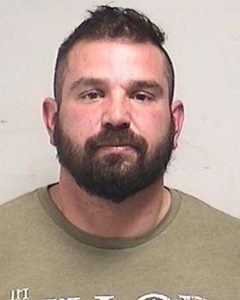
Keith C. Henyard, 37, of Kenosha was charged with a handful of drug felonies back in 2016. For a felony case, one of the steps for the defendant is a preliminary examination. These are typically overseen by non-elected court commissioners. They act very much like judges. They can sign warrants, dismiss cases, etc. On December 28, 2016, Kenosha Commissioner Frank Parise was assigned to handle the preliminary hearing of Henyard. At the hearing, Parise made the ruling that there was, in fact, probable cause that Henyard committed a Felony and bound him over for trial. About 5 months later, Henyard hired Parise as his defense attorney for the same case. This is a violation of the Wisconsin Supreme Court Rules. A lawyer cannot represent a client when he or she has a direct conflict such as this. Henyard hired a new attorney and asked for a re-sentencing and/or to withdraw the plea-deal. The Judge denied this request. Parise told Judge Schroeder on February 4, 2019 that he did not recognize Henyard “at all”; he believed he had done a conflict check before agreeing to represent Henyard but did not “catch” it. Judge Schroeder said that Parise made a mistake and it shouldn’t have happened. Henyard appealed this decision to the Wisconsin court of Appeals alleging among other things, “ineffective assistance of counsel”. The Appeals court ruling, which can be read here, says in part: “we agree with the Dissent that Parise’s representation of Henyard raises serious institutional concerns” and “Parise’s prior service in the role of court commissioner requires our exacting scrutiny”. The Appeals Court ultimately denied Henyards appeal by a 2 to 1 vote, but the dissenting opinion is more critical of Parise. Judges Lisa Neubauer(D) and Mark Gundrum(R) comprised the majority and Judge Paul Reilly (R) dissented.
Dissenting Opinion Rips Parise
Judge Reilly said in his dissent that Parise violated at least 2 Supreme Court Rules. He starts the document by writing:
“Court Commissioner Frank Parise bound Keith Henyard into the criminal justice system and then sold his legal services to Henyard as the one who could get him out. Our supreme court prohibits a court commissioner from engaging in any financial or business dealings that could “[r]easonably be perceived to exploit the judge’s judicial position,” SCR 60.05(4)(a)1.a.”
and
“Five months later, on May 22, 2017, Parise and Henyard “talked.” Henyard went to Parise’s office three days later, on May 25, 2017, and then again on May 26, 2017, where he “physically” gave Parise money. Parise testified that he did a conflicts check, which showed the conflict, but “I didn’t catch it.” Parise claimed no recollection of Henyard, Smith, or the details of Henyard’s eight crimes having been before him five months earlier. Parise testified that Henyard hired him “to cut a better deal.” Parise sold himself to Henyard as the one who could “cut a better deal.” “Parise had no control over what the sentencing judge was going to do, but he implied that he did.” “
And the most scathing:
“Even if one believes Parise’s memory loss, a reasonable court commissioner/judge would have known of the conflict. It strains credibility that Parise,after speaking and meeting with Henyard multiple times, reviewing the complaint and discovery, speaking with Smith, and performing a conflicts check which showed the actual conflict, claims no memory of presiding as court commissioner five months earlier in the same case. The fact that Parise “missed it” when he read his conflict checks does not cleanse the actual conflict that exists.”
And to conclude:
“The State has shown no prejudice to beginning this case anew. Henyard could not consent to Parise’s wrongdoing, and neither should we. Public confidence in the integrity, independence, and impartiality of the judiciary has been challenged enough. We can fix our wrongs in this case, and we should do so. I respectfully dissent.”
Henyard has since filed a petition for review with the Wisconsin State Supreme court. I could take many months to hear if they will accept the case.






























